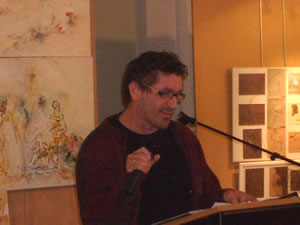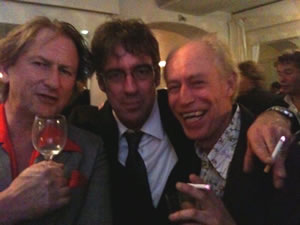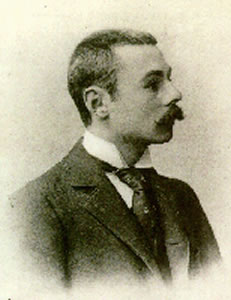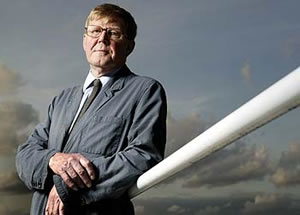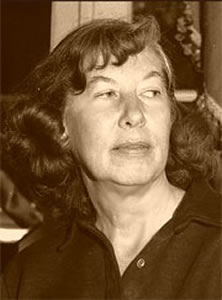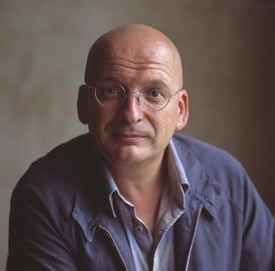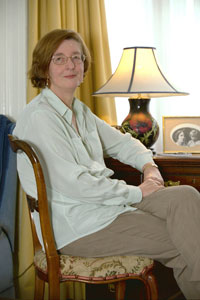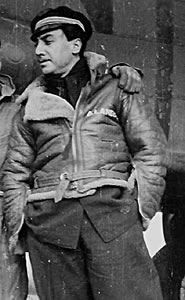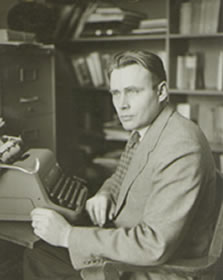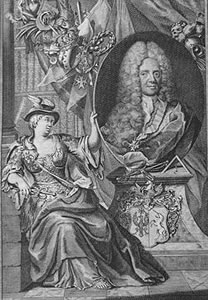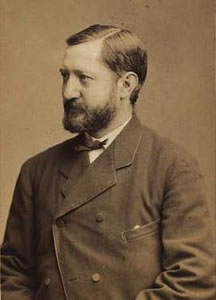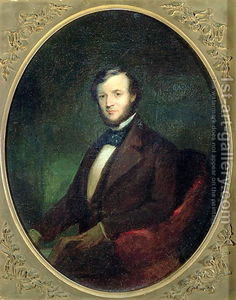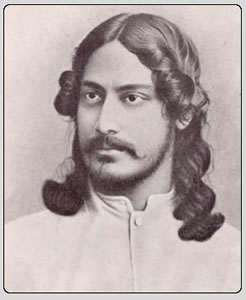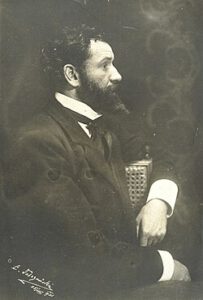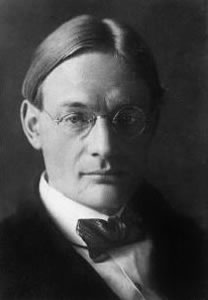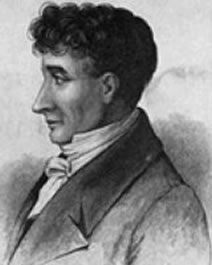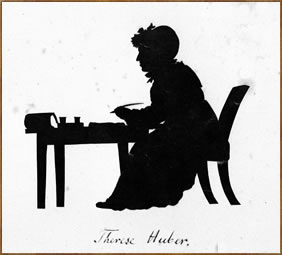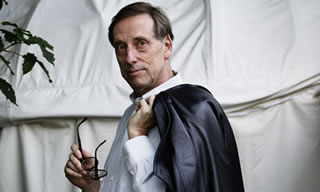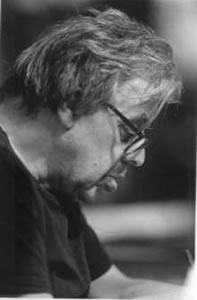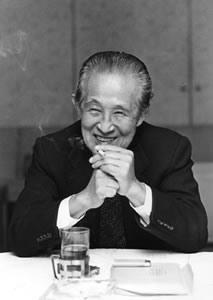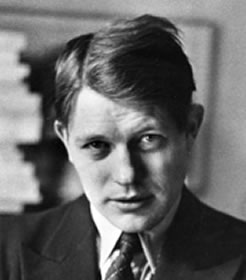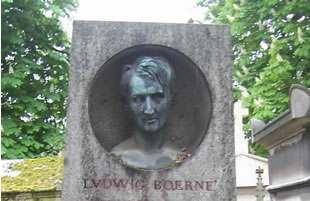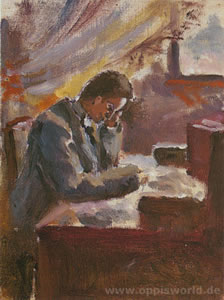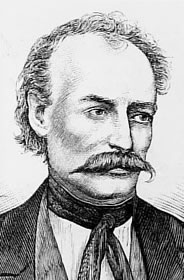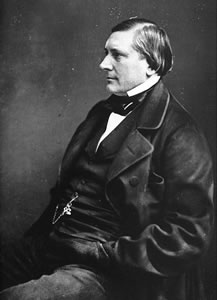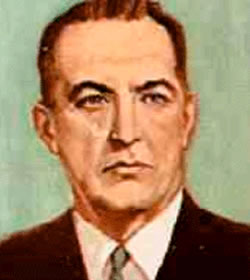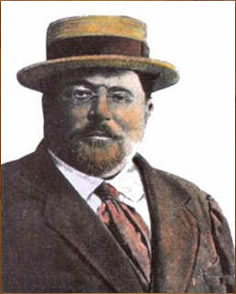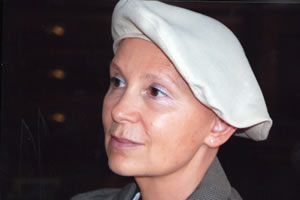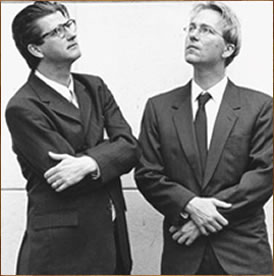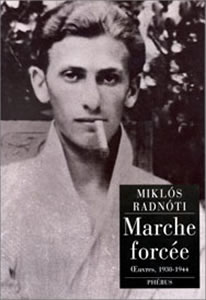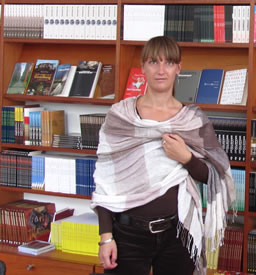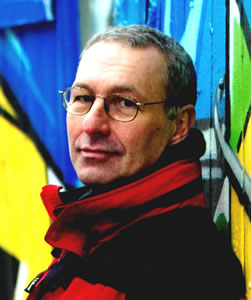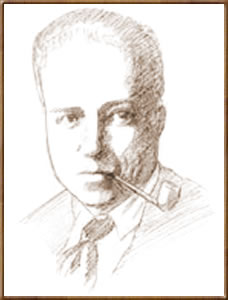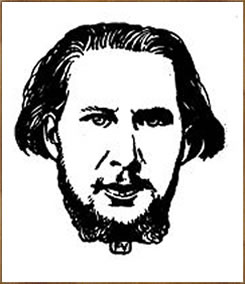De Engelse schrijfster Barbara Taylor Bradford werd geboren in Leeds, West Yorkshire op 10 mei 1933.
Uit: Where You Belong
„The three of us sat in a small copse situated at the far end of the village, taking shelter from the blistering heat. It was bosky and cool on this scorching summer’s day.
The jeep was parked out on the road nearby, and I peered toward it, frowning slightly, wondering what had happened to Ajet, our adviser, guide, and driver. He had gone on foot to the village, having several days before arranged to meet an old school friend there, who in turn would take us to see the leaders of the K.L.A. According to Ajet, the Kosovo Liberation Army had their main training camp in the vicinity of the village, and Ajet had assured us in Pec, and then again on the drive here, that the leaders would be in the camp, and that they would be more than willing to have their photographs taken for transmission to newspapers and magazines around the world. “Everyone should know the truth, should know about our cause, our just and rightful cause,” Ajet had said to us time and again.
When he had left the copse ages ago, he had been smiling cheerfully, happy at the idea of meeting his old friend, and I had watched him step out jauntily as he walked down the dusty road in a determined and purposeful manner. But that had been over three hours ago, and he had still not returned, and this disturbed me. I could not help wondering if something unforeseen, something bad, had happened to the friendly young Kosovar who had been so helpful to us.
I rose and walked through the trees, shading my eyes with my hand and looking down the dirt road. There was no sign of Ajet, and, in fact, there was very little activity at all. But I waited for a short while longer, hoping he would appear at any moment.“

Barbara Taylor Bradford (Leeds, 10 mei 1933)
De Spaanse schrijver Benito Pérez Galdós werd geboren in Las Palmas op 10 mei 1843.
Uit: Our friend Manso (Vertaald door Robert Russell)
„AND I WAS thirty-five years old when that business happened. And if I add that it happened recently and that many of the occurrences included in this true story happened in less than one year’s time, that should satisfy even those readers who are most demanding in matters of chronology. I must disappoint the sentimentalists right from the outset by informing them that I have two Doctor’s degrees and hold a professorship in the Institute, a post I earned in open competition. The subject I teach is a most important one but I choose not to mention it by name. I have dedicated my small intelligence and my time totally to philosophical studies, for in them I have found the purest joys of my life. I don’t see how most people can profess to find this delightful study dry; it’s always old and yet always new, this mistress of all wisdom who governs human existence, visibly or invisibly.
Perhaps those who reject philosophy have done so out of a failure to study her methodically, for that is the only fashion in which to navigate her tortuous secrets. Or perhaps in superficial study they have seen only her extern
al harshness, and never gone deep enough to taste the remarkable sweetness and gentleness of what she holds within. As a special gift in my nature, I showed from early childhood a particular fondness for speculative labors, and for the investigation of truth and the exercise of reason. To this privilege was added, by great good fortune, that of coming under the tutelage of a skillful teacher, who from the very beginning put me on the right path.
How true it is that the happy achievement of difficult undertakings results from a good start; and that a first step, correctly taken, leads to the swift and sure completion of a long journey. „
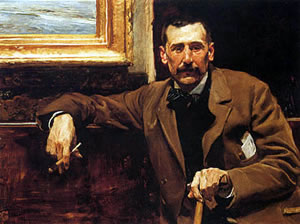
Benito Pérez Galdós (10 mei 1843 – 4 januari 1920)
Portret door Joaquin Sorolla Bastida
De Duitse dichter,schrijver, pedagoog en theoloog Johann Peter Hebel werd geboren op 10 mei 1760 in Basel.
Uit: Das wohlfeile Mittagessen
„Es ist ein altes Sprichwort: Wer andern eine Grube gräbt, fällt selber darein. – Aber der Löwenwirt in einem gewissen Städtlein war schon vorher darin. Zu diesem kam ein wohlgekleideter Gast. Kurz und trotzig verlangte er für sein Geld eine gute Fleischsuppe. Hierauf forderte er auch ein Stück Rindfleisch und ein Gemüs für sein Geld. Der Wirt fragte ganz höflich: ob ihm nicht auch ein Glas Wein beliebe? “O freilich ja!” erwiderte der Gast, “wenn ich etwas Gutes haben kann für mein Geld.” Nachdem er sich alles wohl hatte schmecken lassen, zog er einen abgeschliffenen Sechser aus der Tasche und sagte: “Hier, Herr Wirt, ist mein Geld.” Der Wirt sagte: “Was soll das heißen? Seid Ihr mir nicht einen Taler schuldig?” Der Gast erwiderte: “Ich habe für keinen Taler Speise von Euch verlangt, sondern für mein Geld. Hier ist mein Geld. Mehr hab’ ich nicht. Habt Ihr mir zu viel dafür gegeben, so ist’s Eure Schuld.” – Dieser Einfall war eigentlich nicht weit her. Es gehörte nur Unverschämtheit dazu und ein unbekümmertes Gemüt, wie es am Ende ablaufen werde. Aber das Beste kommt noch. “Ihr seid ein durchtriebener Schalk”, erwiderte der Wirt, “und hättet wohl etwas anders verdient. Aber ich schenke Euch das Mittagessen und hier noch ein Vierundzwanzigkrenzerstück dazu. Nur seid stille zur Sache und geht zu meinem Nachbarn, dem Bärenwirt, und macht es ihm ebenso!” Das sagte er, weil er mit seinem Nachbarn, dem Bärenwirt, aus Brotneid in Unfrieden lebte und einer dem andern jeglichen Tort und Schimpf gerne antat und erwiderte. Aber der schlaue Gast griff lächelnd mit der einen Hand nach dem angebotenen Geld, mit der andern vorsichtig nach der Türe, wünschte dem Wirt einen guten Abend und sagte: “Bei Eurem Nachbarn, dem Herrn Bärenwirt, bin ich schon gewesen, und eben der hat mich zu Euch geschickt und kein anderer.”
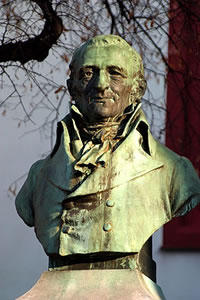
Johann Peter Hebel (10 mei 1760 – 22 september 1826)
Monument in Basel
Zie voor de drie bovenstaande schrijvers ook mijn blog van 10 mei 2008 en ook mijn blog van 10 mei 2009.
De Canadese schrijfster Antonine Maillet werd geboren op 10 mei 1929 in Bouctouche, New Brunswick. Zie ook mijn blog van 10 mei 2009.
Uit: Gapi and Sullivan (Vertaald door Luis De Céspedes)
« SULLIVAN: No need to step on each other’s toes when there’s enough room fer everybody. It’s a large world, Gapi. A big round globe. Some spots are kind o’ rocky, but others are as smooth as moss. And it turns, like a merry-go-round. And once you’re on it, you just let yourself go. You perch yourself on top o’ the world and you let it carry you to the islands, on water, ’n to brand new lands… / GAPI:…where no man ever set foot before you. / SULLIVAN: So you don’t believe me when I tell you I’ve seen the world. Then what is it I’ve been doing all these years, according to you? »

Antonine Maillet (Bouctouche, 10 mei 1929)
De Sloveense schrijver, dichter en toneelschrijver. Ivan Cankar werd geboren in Vrhnika op 10 mei 1876. Zie en ook mijn blog van 10 mei 2009.
Uit: Aus fremdem Leben (Vertaald door Erwin Köstler)
„… Die dritte Nacht stellten wir den Käfig in den Hof, vor den Stall. Wir gaben der Eule Fleisch auf die Streu, damit sie nicht einging. Die ganze Nacht hallte es, wie Weinen und Gelächter, wie Schmerz und Spott, es flatterte um die Kirche, verfing sich im Geäst; die Frühlingsnacht war nicht mehr unser; etwas Fremdes, Schwarzes hatte hineingegriffen, aus einer anderen, jenseitigen Nacht… Noch vor dem ersten Morgenlicht wurde plötzlich alles still, als hätte man hineingeschlagen. Eine entsetzliche Stille legte sich auf meine Brust und ich schlief müde ein …
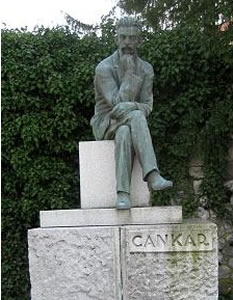
Ivan Cankar (10 mei 1876 – 11 december 1918)
Monument voor Ivan Cankar in Vrhnika
De Duitse dichter Martin Boelitz werd geboren op 10 mei 1874 in Wesel. Vanaf 1902 leidde hij de uitgeverij Nieter in Nürnberg. Zie ook mijn blog van 10 mei 2009.
Letzte Stunde
Und als du starbst, da träumte dir,
Du schrittest durch ein selig Land,
Du gingst an deines Liebsten Hand
Durch Gottes lichte Gnadentür.
Still fiel das goldne Gitter zu –
Ach, wer auch sterben könnt’ wie du!
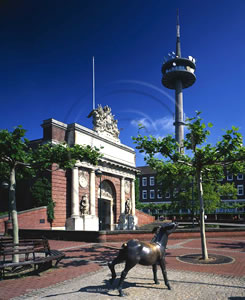
Martin Boelitz (10 mei 1874 – 5 december 1918)
Wesel, Berliner Tor (Geen portret beschikbaar)
De Amerikaanse schrijfster Ariel Durant (eig, Chaya Kaufman) werd geboren op 10 mei 1898 in Proskoeriv, tegenwoordig Chmelnytsky in de Oekraïne. Zie ook mijn blog van 10 mei 2008 en ook mijn blog van 10 mei 2009.
Uit: The Phy
siocrats
„In an apartment at Versailles, under the rooms and the favoring eye of Mme. De Pompadour, that economic theory took form which was to stir and mold the Revolution, and shape the capitalism of the nineteenth century.
The French economy had been struggling to grow despite the swaddling clothes of regulations — by guilds and Colbert — and the Midas myth of a mercantilism that mistook gold for wealth. To increase exports, diminish imports, and take the “favorable balance” in silver and gold as a prop of political and military power, France and England had subjected their national economies to a mesh of rules and restraints helpful to economic order but harming production by hampering innovation, enterprise, and
competition. All this — said men like Gournay, Quesnay, Mirabeau pere, Du Pont de Nemours, and Turgot — was quite contrary to nature; man is by nature acquisitive and competitive; and if his nature is freed from unnecessary trammels he will astonish the world with the quantity, variety and excellence of his products. So, said these “physiocrats,” let nature (in Greek, physis) rule (kratein); let men invent, manufacture, and trade according to their natural instincts; or, as Gournay is said to have said, laissez
faire—”let him do” as he himself thinks best. The famous phrase was already old, for about 1664, when Colbert asked businessman Legendre, “What should we [the government] do to help you?” he answered, “Nous laisser faire — let us do it, let us alone.”

Ariel Durant (10 mei 1898 – 25 oktober 1981)
Will en Ariel Durant
Zie voor onderstaande schrijver ook mijn blog van 10 mei 2007.
De Vlaamse schrijver en dichter Leonard Buyst (ook wel Léonard) werd geboren in Lokeren op 10 mei 1847.
Zie voor onderstaande schrijver ook mijn blog van 10 mei 2009.
De Duitse schrijver Fritz von Unruh werd geboren op 10 mei 1885 in Koblenz.

